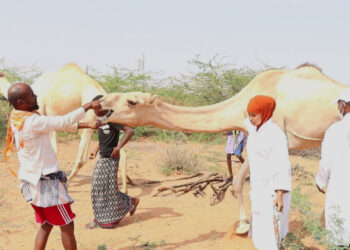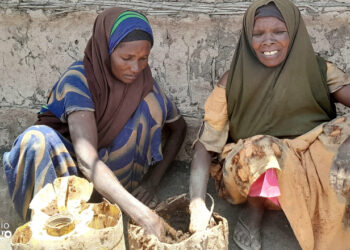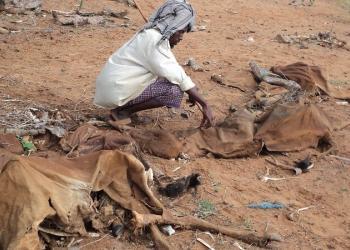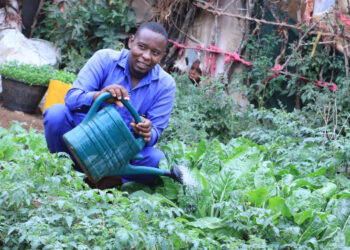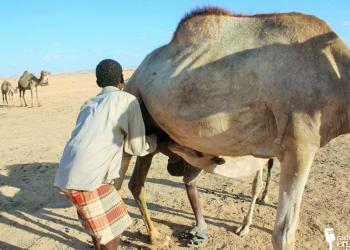(ERGO) – It is now just over three years since Mahamud Hassan Hussein, 76, left the Dadaab refugee camps in Kenya to return to his farm in Baidoa.
He and his 12-member family live in their own house at Boonkaay, 10 km from Baidoa town, and are now earning a living from their farm.
Ten days ago, Mahamud took 20 bags of sorghum to market and sold them for four million Somali shillings, around $200.
This is enough to cater for the fees for his six children in primary school and for the other family expenses for the rest of the month.
Mahamud goes to work on his farm every morning, as he has done since he returned in November 2012. It is a routine he has come to appreciate after living for 13 years in Ifo I camp in Dadaab, where life was restricted.
“I thought there was abundance in the refugee camp. But in the many years that I was living in Ifo I camp insufficient food was distributed by the NGOs, and despite the fact that my children had access to free education there, we didn’t enjoy freedom of movement,” said Mahamud.
“The main reasons we became refugees were to live in a safe place where there was peace and to have a life that was better than the one we were living in our own country. But when I realised the deteriorating security there [in Kenya], I decided to come back to my home country and earn a living digging my own farm.”
When he left Baidoa in 1999 due to a combination of conflict and drought, unlike many local farmers Mahamud did not sell his farm.
It took him two years to get the farm land back in shape for planting, and to remove the bush that had grown over it in his absence. He also had to repair and restore the house. As the family cleared a portion of the eight hectares of land, they planted seeds.
Mahamud calculated that he spent six to seven million shillings on repairs to both the house and the farm. He acquired some of the money as a loan and the rest as a donation from relatives.
He planted sorghum, maize, beans and groundnuts and has so far produced four harvests.
While there are eight goats to provide milk for the family, Mahamud is still working on restocking the livestock he had which were stolen before he fled the country.
Life is good, he says, and there are good reasons to stay in Somalia.
“We are lacking nothing at the moment. We are happy about our lives as we eat the products of the work of our hands. We keep some of the harvest in reserve for our food and sell the surplus. We feel relieved of the refugee life,” Mahamud said.


